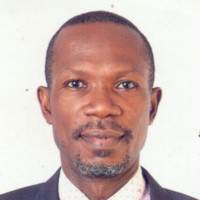#IgboMustGo: The disclaimer by Lagos State government
By Emeka U. Opara
While the statement by the Lagos State Government on the genocidal threat and order to the Igbo to vacate the Southwest is a welcome difference from the ominous silence that preceded it, it falls grossly short of what is expected of a government.
There was, in the statement, no directive to the security agencies to identify and bring to book those behind the genocidal threat and the clear incitement to genocide. The statement by the Lagos State Government was not much more than a mere disclaimer, stating that the order for the Igbo to vacate Lagos and calling out for mass action to enforce it was not from them.
Genocide, threats of and incitements to genocide are very grave crimes. Although Nigeria is a signatory to the international instruments that criminalize genocide and other crimes against humanity, in the case of genocide, Nigeria, like all other governments and persons on earth, owe to the rest of the world a duty to prevent genocide and to punish every conspiracy to commit genocide and incitement to genocide, and this duty does not depend on whether or not Nigeria is a signatory or whether or not it made reservations in signing up to the treaty.
This is because genocide has long gone into the realm of customary international law. Such customary international laws, like the law against genocide, are called jus cogens, meaning that there can be no derogations from the norms contained in them.
READ ALSO: NASS South East Caucus petitions IGP, demands arrest of instigators of anti-Igbo action
Nigeria, at both the central, regional and sub-regional levels owe a duty to prosecute and punish for genocide, attempts at genocide and conspiracy to genocide. The Lagos State Government, especially since the coming into being of the present Lagos State Government, has reacted only tepidly, at best, to clear actions pointing to genocide or serious crimes against humanity within the state. Instead, the body language of the governor and its officials have been that of passive encouragement to those who promote actions and statements that are precursors to genocide or who incite genocide.
The body of laws against genocide is contained in the Convention on the Prevention and Punishment of the Crime of Genocide of 1948 (otherwise called the Genocide Convention of 1948). By its Article II the Convention defines genocide as “any of the following acts committed with intent to destroy, in whole or in part, a national, ethnical, racial or religious group, as such:
(a) Killing members of the group;
(b) Causing serious bodily or mental harm to members of the group;
(c) Deliberately inflicting on the group conditions of life calculated to bring about its physical destruction in whole or in part;
(d) Imposing measures intended to prevent births within the group;
(e) Forcibly transferring children of the group to another group.”
Article III makes it clear that “the following acts shall be punishable:
(a) Genocide; (b) Conspiracy to commit genocide; (c) Direct and public incitement to commit genocide; (d) Attempt to commit genocide; (e) Complicity in genocide.”
Article IV is instructive. It states that “Persons committing genocide or any of the other acts enumerated in article III shall be punished, whether they are constitutionally responsible rulers, public officials or private individuals.”
As stated earlier, most of the norms in the Genocide Convention have become customary international law, and the reach of those norms against genocide applies to all authorities and persons on earth and no longer restricted to state parties and their subjects.
Apart from genocide, the International Criminal Tribunal for the Former Yugoslavia (ICTY), a precursor of the ICC, has variously held that certain crimes against humanity have also moved into the realm of customary international law. These include ethnic cleansing and herding some people based on ethnic origin out from where they lawfully reside for the purpose of ethnic cleansing. This happened severally in the Yugoslavian War. The jurisprudence of international law concerning these things have assumed defined certainty. It means that it is not only genocide that could lead to an indictment in The Hague. Suffice here, for this is not a treatise on these things but are mentioned only for illustration.
There is no doubt that the Government of Lagos State and its officials beginning from the Governor are aware of these things. Coming out with a tepid disclaimer is therefore simply like the action of Pontius Pilate in washing off his hands as a sign of resignation while giving the nod to those who accused an innocent man to do whatever they felt like to him. In modern times, the Pontius Pilate plea or anything akin to it can never be acceptable at the International Criminal Court (the ICC). It was not acceptable in the Nuremberg trials when Nazi war criminals were tried. The ICTY could not hear it with sympathy from Slobodan Milošević, Ratko Mladić and the other war criminals of the Yugoslavian War, and it would be less acceptable now or in the future in Nigeria, especially coming from the present leaders of Lagos State whose actions, body language and convenient forgetfulness point to an encouragement to the foot soldiers who carry out these evil acts.
What would be acceptable is for the Federal and Lagos State Governments to arrest and seriously prosecute and jail, as a matter of urgency, the people that are inciting genocide in Nigeria. Anything short of that would be mere pretence, and it would not be wrong to characterize the disclaimer of the Lagos State government (in effect its throwing up of its hands in apparent helplessness) as mere pretence. I believe that the international community who also owe a duty under international law to see that such as happened in Nazi Germany, in Biafra, in Yugoslavia and, of recent, in Rwanda, does not happen again anywhere are watching. If the Nigerian governments do not want to live up to their duty, the rest of the world must make them do their duty or else take up the responsibility.
- Emeka U. Opara is an international law attorney













